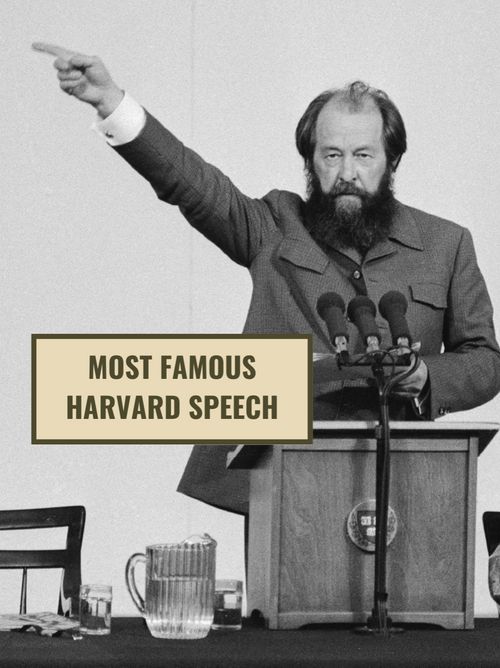The Harvard speech that shook the world
Dec 14, 2021 · 2 mins read
0
Share

Aleksandr Solzhenitsyn was a Russian writer and political dissident. He made a number of speeches in front of Western audiences after getting exiled from the USSR in 1971. The most famous one was delivered at Harvard in 1978 - here are the top insights 👇
Save
Share
Solzhenitsyn diagnosed contemporary life with two important ailments: "Hastiness and superficiality are the psychic diseases of the twentieth century." People prefer to think and do a lot superficially instead of thinking or doing one thing in depth.
Save
Share
Solzhenitsyn argued that a "decline in courage " was evident in all facets of modern life. From art to politics, from business to education, he noted a certain "depression, passivity, and perplexity" of the spirit.
Save
Share
Solzhenitsyn noted that while the western countries did not have explicit censorship like USSR, "fashionable trends of thought" often suppressed more original thinking. He said: The "need to match mass standards frequently prevent independent-minded people from" speaking out.
Save
Share
Solzhenitsyn argued that both the communist "party mob" in the USSR and the overwhelmingly commercial nature of life in the West ended up negating spiritual life.
Save
Share
This led Solzhenitsyn to comment: "The split in the world is less terrifying than the similarity of the disease afflicting its main sections." It's not that different parts of the world can't get along - it's that they all face the same (materialist) doom.
Save
Share
Solzhenitsyn believed globalization had a hidden but important cost: flattening the differences between different cultures and countries. He said: "The disappearance of nations would impoverish us no less than if all peoples were made alike, with one character, one face."
Save
Share
Too much comfort and ease is detrimental as strength only develops by encountering adversity. Solzhenitsyn said: "Even biology knows that habitual extreme safety and well-being are not advantageous for a living organism." Contemporary life cranks up comfort at the cost of growth.
Save
Share
A critique of media. Because people demand breaking news and instant updates, the media fills its lack of solid knowledge with "guesswork, rumors and suppositions." Solzhenitsyn didn't live long enough to see social media, but he wouldn't have been a fan.
Save
Share
Bottom line. It's interesting to view our modern life and politics through the lens of a 20th century Russian dissident. While Solzhenitsyn's spiritualism isn't for everyone, his critique of media, globalization, and more feels prescient in hindsight.
Save
Share
0